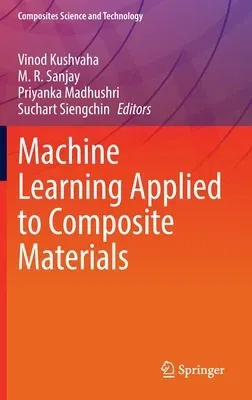Machine Learning Applied to Composite Materials (2022)Hardcover - 2022, 30 November 2022

Qty
1
Turbo
Ships in 2 - 3 days
In Stock
Free Delivery
Cash on Delivery
15 Days
Free Returns
Secure Checkout

Part of Series
Composites Science and Technology
Print Length
198 pages
Language
English
Publisher
Springer
Date Published
30 Nov 2022
ISBN-10
9811962774
ISBN-13
9789811962776
Description
Product Details
Book Edition:
2022
Book Format:
Hardcover
Country of Origin:
NL
Date Published:
30 November 2022
Dimensions:
23.39 x
15.6 x
1.27 cm
ISBN-10:
9811962774
ISBN-13:
9789811962776
Language:
English
Location:
Singapore
Pages:
198
Publisher:
Weight:
467.2 gm